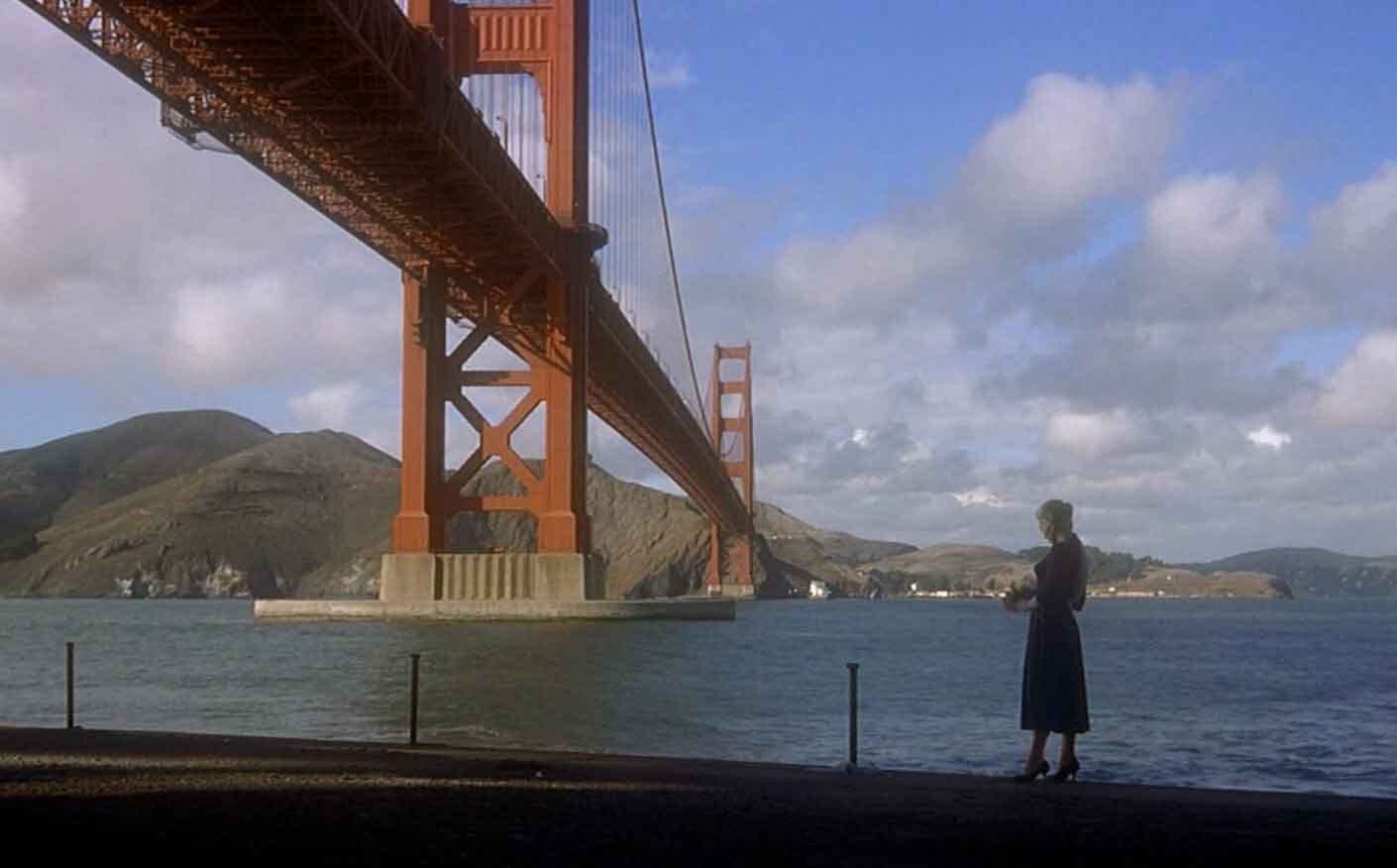Summary:
At the request of a friend, a former detective investigates an acquaintance’s wife, whom has been acting mysterious. As he does, he finds himself falling in love with the woman.
My Thoughts:
Let’s not beat around the bush: “Vertigo” is one of the greatest tragedies in cinema history from one of the greatest filmmakers to ever live. It’s a film that perfectly blends a thrilling and disturbing noir storyline with lovers so star-crossed it would’ve made Shakespeare proud. It’s also a film that so perfectly captures the golden age of Hollywood: it’s rife with glorious 50s melodrama, saturated with beautiful Technicolor, the costumes are extravagantly designed, and it features a soundtrack so earnest and melancholy it practically begs the viewer to shed a tear. “Vertigo” is a film that has inspired generations of filmmakers and will continue to inspire them. “Vertigo” isn’t even my favorite of Hitch’s films (you can’t beat “Psycho” in my opinion), and that right there should be a testament to how great of a director the late Master of Suspense really was.
“If I let you change me, will that do it? If I do what you tell me, will you love me?”
After an accident leaves a fellow officer dead, John “Scottie” Ferguson (James Stewart, “Anatomy of a Murder”) retires from being a detective thinking that he’s incompetent for his job. But after an old acquaintance, Gavin Elster (Tom Helmore, “The Time Machine (1960)”), asks Scottie to follow his beautiful wife, Madeleine (Kim Novak, “Kiss Me, Stupid”) whom has been acting strangely, Scottie reluctantly agrees. As Scottie follows Madeleine, he finds himself becoming more and more obsessed with her, and soon, a tragedy befalls them. Shortly after said tragedy, Scottie sees a woman whom looks remarkably like Madeleine, and attempts to form a relationship with her.
(MAJOR SPOILERS FOLLOW)
I think the thing that I like the most about this film, other than the overall Golden Age Hollywood aesthetic, is the way that the mystery of whom exactly Madeleine is and whom she pretends to be is only half of what makes this film great; that mystery is revealed to us before the climax, because, in the end, the mystery is not wholly what’s most important about the film. What is most important is the relationship between Scottie and Madeleine/Judy. The relationship between the two characters is constantly strained, because one person is always lying to the other: either Judy is lying to Scottie about who she is, or Scottie is lying to Judy about why he wants to be with her.
What makes the film tragic is that, given different circumstances, you could see how these characters could’ve been perfect for one another, they could’ve helped one another heal, but they were brought together by an evil plot that, in the end, tears them apart. What makes the relationship even more interesting is that neither of their characters is particularly evil, and both parties end up wronged and hurt; though Judy was party to Gavin’s wife’s murder, she feels awful for dragging Scottie into the situation. Even worse, after the murder Judy starts to fall in love with Scottie, and her character has to deal with the knowledge of her own betrayal towards the one she’s starting to love on top of the murder she help to facilitate; it’s no wonder Novak portrays her in such an anxious, unsettled way.
I think the reason I’m alright with Hitch revealing that Judy was involved with the murder before Scottie actually discovers it for himself is because Scottie was always suspicious of this case’s validity in the first place. Even when Gavin approaches Scottie in the beginning of the film, requesting that the former detective follow his wife, his request is accompanied by an odd question: “Do you believe that someone out of the past- someone dead- can enter and take possession of the living?” Scottie’s immediate reaction to this question is to think its absurd. Scottie has always known something isn’t right with the case, and even afterwards, he’s drawn to Judy because she looks like Madeleine; he’s unable to move on from the case because, subconsciously or consciously, he knows that something is wrong with it. When Hitch reveals Gavin throwing his wife from the bell tower, it allows the viewers time to see things from Judy’s perspective, it allows us time to sympathize with her, and that’s incredibly important because it amplifies the tragedy. We see, from Judy’s perspective, how much she loves Scottie, and how much she’s willing to give up in order to hide the fact that she was involved in this murder; had she not worn the necklace that gave away her involvement, the two of them still might have been happy. There are so many layers to this tragedy; it’s just wonderful and heartbreaking.
Beyond the actual story, I think this is one of the more gorgeous Technicolor films we ever received from Hitch. San Francisco looks absolutely beautiful through his lens; some of the shots of the Golden Gate Bridge and of the Redwoods are just breathtaking. I also love the soundtrack for this movie; I think it’s both sweeping and tragic, and again, it perfectly captures that Hollywood Golden Age feel.
Verdict:
I feel like “Vertigo” is a classic that must be seen by every person who considers him or herself a cinephile. It’s a staple in classic cinema; has been for sixty-two years and I’m sure it will be for another hundred.
Review Written By:






